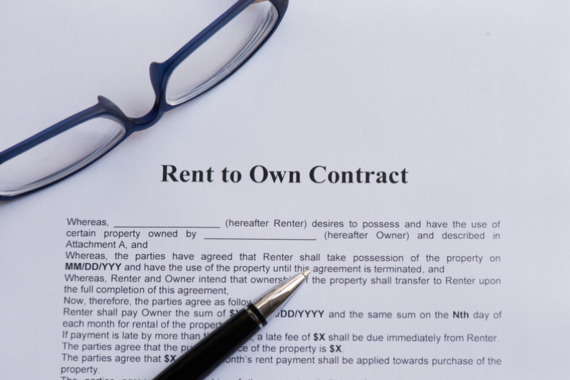Lease purchase and rent to own are essentially the same thing. Someone rents a home from the owner with an agreement that they CAN purchase it at a future date at a stated price or at a price based on an appraisal at the time. It is an OPTION to buy, not a requirement.
A lease purchase contract is executed at a stated monthly lease amount a time frame for the exercise of the purchase option, and the price to be paid if the tenant exercises their purchase option. What's in it for the players?
Tenant-Buyer
Often renters have credit or other financial issues that make it impossible for them to buy a home, though they would like to. Maybe they can't afford a down payment, and/or their credit is not good. They need time to work on improving their credit score and saving for a down payment. If they can lease purchase a home they would buy if they could, then they can use the time in the contract to improve their situation and buy at the stated time.
Owner-Seller
There can be a number of reasons why a homeowner would elect to use this approach to a sale, most due to an inability to sell at the current time. Often they owe too much to sell and pay the costs of sale. They often need to move quickly to take advantage of a job offer elsewhere. They could rent the home out and move to the new area, but then they would have the usual tenant and management issues while starting over elsewhere.
Another advantage for the owner is that a tenant buyer has the goal of owning the home in the future. For this reason, they normally take better care of it than a regular tenant. There are even some lease purchase agreements that have the tenant buyer taking on some of the obligations for repairs, as they want the home and want to control what happens until they exercise their option and buy it.
How it Becomes an Investment - The Sandwich Lease
Let's use a simple example to show how this can work for an investor who doesn't have the cash, desire or ability to purchase a rental property. They locate an owner who needs to sell but cannot. They do some due diligence and find that the mortgage payments are significantly below current rents for comparable homes.
An offer to lease purchase is made with a negotiated purchase price 3 to 5 years in the future. In other words, the investor will pay a stated lease payment that covers the mortgage payments of the owner so that they can move on. At the end of the period, the investor has the right, but NOT the obligation, to exercise their purchase option and buy the home.
The investor is at the same time working with a tenant buyer. Generally if you're going to use this strategy, you will have been advertising and building a list of renters who would like to buy a home through the rent to own strategy. A lease payment higher than the amount negotiated with the owner is set up, and the difference becomes the cash flow enjoyed by the investor.
In most cases, the homeowner is incentivized to make the deal through an option fee. It is a non-refundable amount paid to them when the deal is done, and it's cash they can use in their move. It's negotiable, and often falls somewhere between $1,000 and around $3,000. However, it's not coming out of the investor's pocket in a sandwich lease deal.
The same amount, or possibly more for a profit, is negotiated with the tenant buyer. So, closing both deals simultaneously will have the funds pass through and the investor has little or no money involved.
What happens if the tenant buyer doesn't decide to buy at the end of the lease? Of course, if they do, the price will be higher than the one negotiated with the original owner, resulting in another profit for the investor. But, if they decide to move on or just keep leasing, the investor does not have to buy the home. Either another lease period is negotiated, or the tenant moves on and the owner gets their home back.
It's more complicated than other rental investment strategies, and an attorney should draft these agreements. However, if you can pull these deals together, you can create cash flow without any cash of your own.

